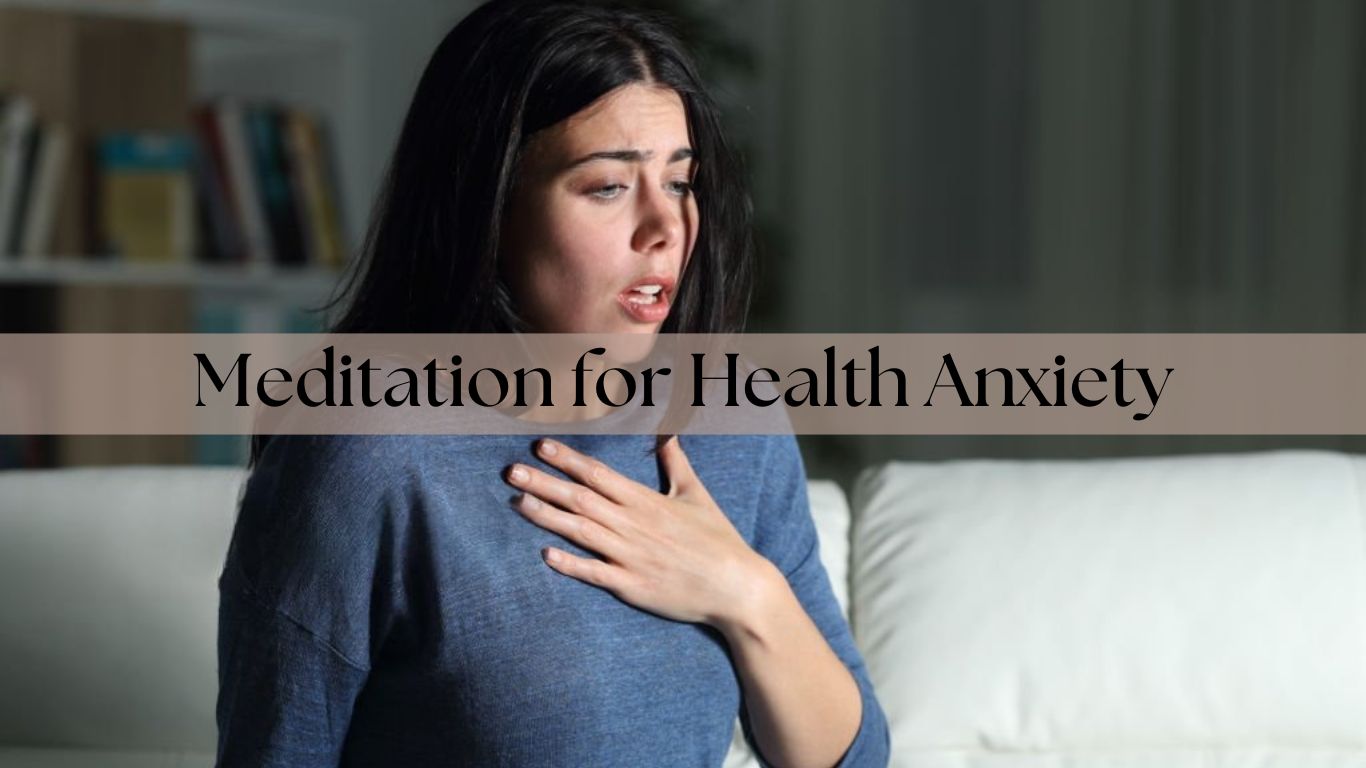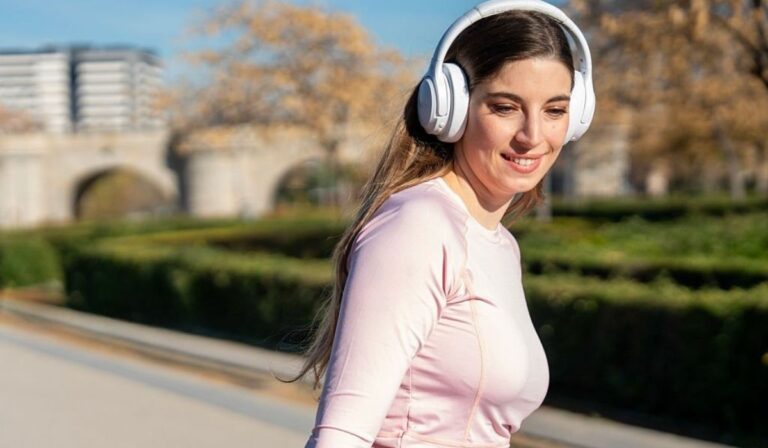Meditation for Health Anxiety: Find Calm and Overcome Worries
Health anxiety is like having an overactive alarm system in your mind—it keeps ringing even when there’s no real danger. If you’ve ever felt consumed by worries about your health, you’re not alone. Millions of people grapple with this, and meditation could be the key to finding relief. By tapping into the power of mindfulness, meditation helps calm the storm of anxious thoughts, allowing you to regain control and live with peace of mind.
What is Health Anxiety?
Health anxiety, also known as illness anxiety disorder, involves excessive worry about having or developing serious medical conditions. It often leads to:
- Constantly checking for symptoms
- Overusing medical resources
- Experiencing physical symptoms caused by stress, such as headaches or nausea
- Avoiding situations or activities that could lead to perceived health risks
This persistent worry can negatively impact your emotional well-being, relationships, and overall quality of life. Understanding its effects is the first step toward managing it.
The Science Behind Meditation and Anxiety Relief
Meditation has gained recognition as a powerful tool for mental health. Numerous studies show that regular meditation can:
- Reduce cortisol, the stress hormone
- Increase activity in the prefrontal cortex, the brain’s control center for rational thinking
- Lower heart rate and blood pressure, alleviating physical symptoms of anxiety
Through meditation, your brain learns to respond rather than react to anxious thoughts, creating a calmer, more balanced state of mind.
How Meditation Helps with Health Anxiety
Meditation tackles health anxiety by addressing its core drivers:
- Reducing Stress and Worry
Meditation teaches you to focus on the present moment, breaking the cycle of ruminating over worst-case scenarios. - Cultivating Awareness and Acceptance
It encourages you to observe your thoughts without judgment, helping you accept uncertainties about your health rather than fighting them. - Building Resilience
Regular practice fosters emotional strength, enabling you to face anxiety triggers with confidence.
Types of Meditation for Health Anxiety
Here are four effective meditation styles:
- Mindfulness Meditation
Focus on your breath or sensations to stay grounded in the present. - Guided Meditation
Follow audio or video instructions to stay on track and relax deeply. - Body Scan Meditation
Slowly shift your attention through each part of your body, releasing tension and promoting relaxation. - Loving-Kindness Meditation
Cultivate feelings of compassion and self-love, counteracting the harsh inner critic often associated with anxiety.
Step-by-Step Guide to Starting Meditation
Ready to give meditation a try? Here’s how:
- Find a Quiet Space
Choose a comfortable, peaceful spot where you won’t be disturbed. - Select a Technique
Start with something simple like focusing on your breath or listening to a guided meditation. - Set Realistic Goals
Begin with 5–10 minutes daily and gradually increase the duration as you get comfortable. - Stay Consistent
Make meditation a part of your routine, like brushing your teeth or having coffee.
Best Practices for Meditating with Health Anxiety
- Don’t Fight Intrusive Thoughts
Allow them to come and go without attaching meaning or fear. - Use Deep Breathing
Pair your meditation with slow, deep breaths to anchor yourself. - Prioritize Consistency
Even a few minutes a day can make a difference.
How to Measure Progress in Meditation
Progress isn’t always about big changes. Look for:
- A reduction in the frequency or intensity of anxious thoughts
- Improved sleep and focus
- Greater patience and emotional balance
Using a journal or mindfulness app can help you track these subtle shifts.
Strategies to Complement Meditation
While meditation is powerful, combining it with other strategies can supercharge your results:

- Exercise and Healthy Living
Regular physical activity releases endorphins, which are natural mood elevators. Pair this with a balanced diet and proper sleep to reduce overall stress levels. - Cognitive-Behavioral Therapy (CBT)
CBT helps identify and challenge negative thought patterns, complementing meditation’s focus on mindfulness and awareness. - Support Groups
Connecting with others who experience similar struggles can provide emotional support and reduce feelings of isolation.
Common Misconceptions About Meditation and Health Anxiety
- Meditation Stops All Thoughts
It’s not about stopping thoughts but observing them without judgment. - You Need Hours to Meditate
Just 5–10 minutes a day can create noticeable improvements. - Meditation Works Instantly
Like any skill, it takes time and consistency to experience lasting benefits.
Challenges and How to Overcome Them
- Dealing with Restlessness
It’s normal to feel fidgety at first. Start with short sessions and gradually extend them. - Managing Expectations
Progress isn’t always linear. Be patient with yourself and trust the process. - Staying Motivated
Remind yourself why you started and celebrate small wins along the way.
Success Stories: Real-Life Examples
Countless people have found relief from health anxiety through meditation. For instance:
- Emily’s Journey: Emily, a 35-year-old teacher, overcame her fear of illness after practicing mindfulness meditation daily for six months. She now feels calmer and better equipped to handle her worries.
- John’s Experience: John, a software developer, found that guided meditation helped him sleep better, reducing his anxiety significantly.
These stories remind us that small, consistent steps lead to meaningful change.
Conclusion
Health anxiety can feel overwhelming, but meditation offers a way to regain control. By practicing mindfulness, you can break free from the cycle of constant worry, cultivate inner peace, and enjoy a more fulfilling life. Remember, meditation is a journey, not a destination—start small, stay consistent, and watch as it transforms your mindset and overall well-being.
FAQs
- How long does it take for meditation to help with anxiety?
Many people notice small changes within weeks, but lasting effects often require consistent practice over months. - Can meditation replace therapy or medication?
Meditation is a complement, not a replacement. Always consult a healthcare professional for severe anxiety. - What’s the best time to meditate?
Any time works, but mornings or evenings are ideal for building a routine. - What if I can’t stop my mind from racing?
That’s okay! Simply return your focus to your breath or the present moment. - Do I need any special equipment to meditate?
No. All you need is a quiet space and a willingness to try.






